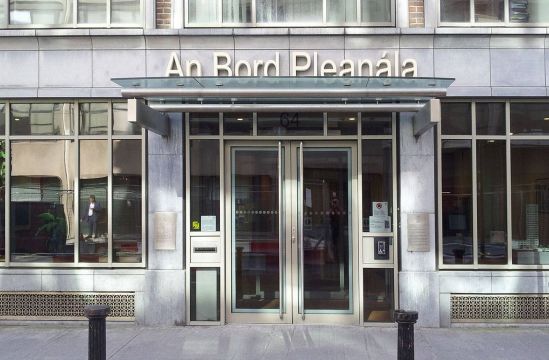Eight Killiney residents have been given permission from the High Court to pursue a legal challenge aimed at quashing permission for a strategic infrastructure housing development, despite protestations from the developer.
The action, taken over An Bord Pleanála’s permission for 255 residential units off Church Road in the south Dublin area, was initiated in the High Court in August.
Developer Atlas GP Limited, a subsidiary company within Pat Crean’s Marlet Property Group, has issued separate proceedings seeking an injunction restraining any steps in the judicial review because of an alleged breach of the doctrine of champerty and maintenance, which is aimed at preventing a disinterested party involving itself in litigation.
Atlas claims the judicial review challenge is being funded by third parties with no legitimate interest in the proceedings. The residents will seek to strike out the developer's action, which they say amounts to an "abuse of process".
When the application for leave returned before Mr Justice David Holland on Tuesday, he said he was satisfied the applicants, who live in the area immediately adjoining the proposed development, have “sufficient interest” in the matter. He said substantial grounds had been raised and said he would allow the residents' challenge to proceed.
The residents' judicial review application is against An Bord Pleanála, Ireland and the Attorney General, while Atlas is a notice party.
Adjournment
Paul McGarry SC, representing Atlas, said his client intends to move an application to set aside the leave granted.
Mr McGarry had asked for the leave application to be adjourned until February 2022, when the Chancery Court will hear the residents' motion to dismiss the injunction application. However, Mr Justice Holland said he could not see how the developer could be prejudiced by proceeding with the leave application on Tuesday.
For the residents, Stephen Dodd SC, instructed by Eoin Brady of FP Logue Solicitors, said the judicial review application seeking to overturn An Bord Pleanála’s permission for the development is based on 12 grounds, including seven that allege material contraventions of the local development plan.
If correct about any of these alleged contraventions, the board will have breached a section of the Planning and Development Act by failing to highlight a contravention, Mr Dodd said.
He noted that Dun Laoghaire-Rathdown County Council had recommended the development be refused by reason of its overall scale, excessive density and its overbearing influence on existing properties.
Grounds
Among the applicants’ core grounds of challenge is a claim the development does not meet public space requirements dictated by the local development plan and that the board acted beyond its authority by granting permission without considering if such a contravention could be justified.
Mr Dodd also said the planning application allegedly relied on “inadequate” environmental screening surveys and that the correct legal test in relation to bat fauna was not applied as required under the EU’s Environmental Impact Assessment Directive and the Habitats Directive.
Mr McGarry said his client is seeking an early return date for an application to set aside the leave. He added he will also be seeking to set aside a motion for a stay on works issued by Mr Dodd.

He said the developer will undertake not to conduct any works on the site until after the issue returns before the court in early January.
In addition to its injunction action, Atlas has also issued proceedings seeking damages and other orders against all eight residents over alleged defamation of the company in a flyer, published by 'Watson Killiney Residents Association' seeking contributions from local people to help raise €60,000 towards legal costs of the judicial review.
The company claims the eight residents are the authors, or are connected to the authors, and/or are responsible for the publication and distribution of the leaflet, which is alleged to have contained false and inaccurate statements about Atlas.
In its third set of proceedings over the issue, taken against two of the residents, Atlas alleges that a restrictive covenant of November 2000 prevents those two individuals from challenging the permission. The company also seeks damages over this alleged breach of the covenant.







